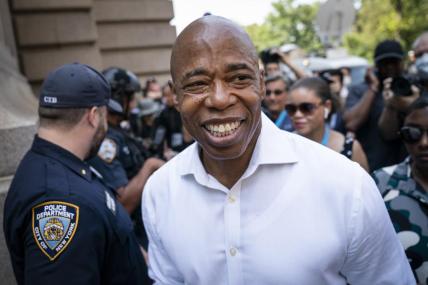Eric Adams elected as New York City’s second Black mayor
Adams is the Brooklyn borough president and a former New York City police captain
Former police captain Eric Adams cruised to victory Tuesday to become the next mayor of New York as voters across the U.S. picked new city leaders from candidates who were largely defined by their stances on police and crime.
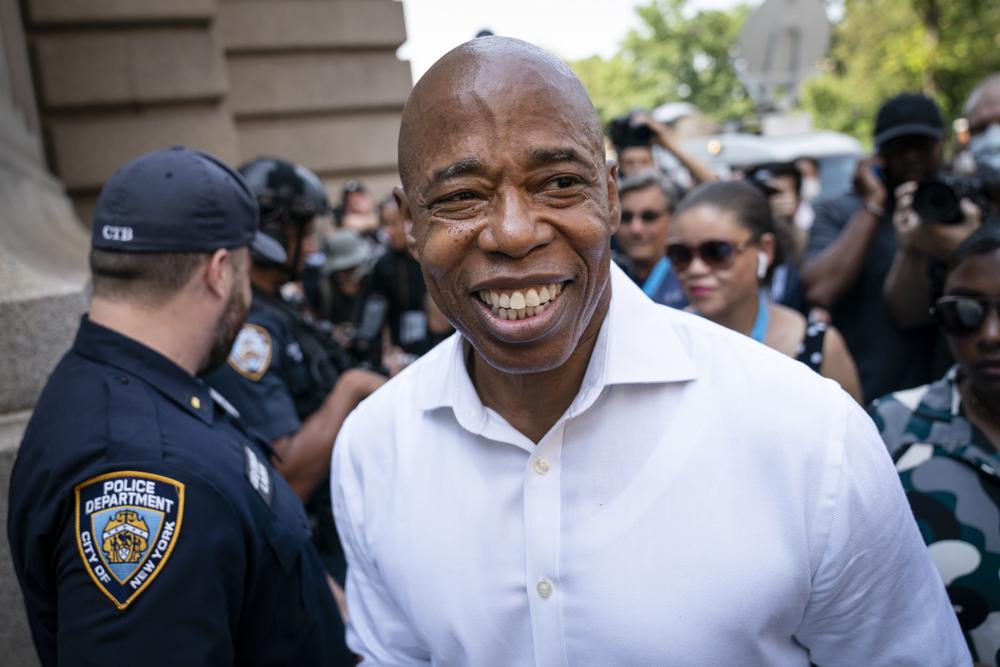
Adams, who will become the second Black mayor of the nation’s largest city, first triumphed this summer in a crowded Democratic primary after he struck a nuanced stance on law enforcement issues. His message on crime and his experience as a police officer largely insulated him from attacks from his Republican opponent Curtis Sliwa, the founder of the Guardian Angels anti-crime patrol.
He described being beaten by police officers as a teenager when he was arrested for trespassing. When he later became a cop, he was a vocal critic of the police department, advocated for Black officers and spoke out about injustices. But he did not embrace calls from some progressives to defund the police by shifting money from law enforcement to social work and other programs aimed at addressing the root causes of crime.
Police and crime issues came to the forefront in cities big and small after the death of George Floyd last year led to a national reckoning on racial injustice and law enforcement. The debate centered on questions of when and where police are needed — or sometimes whether they’re needed at all. It also unfolded amid an increase in homicides in the wake of the pandemic.
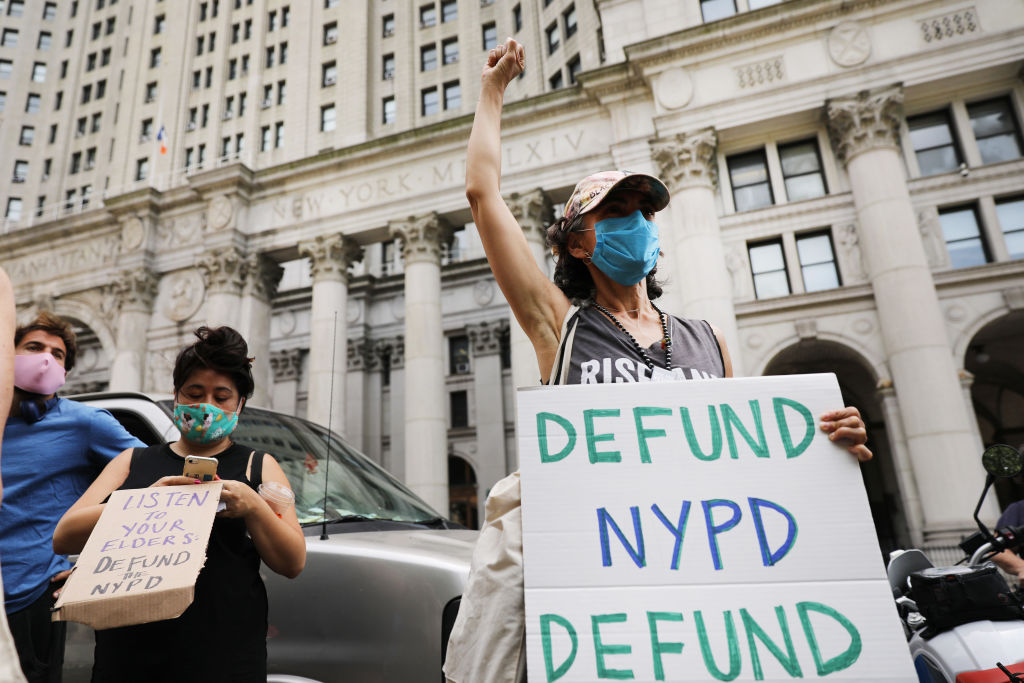
In some big cities, fear or a desire for a middle-ground approach elevated candidates seen as more supportive of law enforcement or who have rejected liberal calls to defund the police. In Minneapolis, where Floyd was killed, the push for change could upend law enforcement practic es and help decide who leads the city.
Minneapolis Mayor Jacob Frey, a Democrat, has defended the police department against calls to dismantle it. On Tuesday, he’s fighting to keep his job against 16 challengers, with the most serious contenders running to his left.
Frey’s prospects may be linked to a ballot question that asks voters whether they want to replace the police department with a Department of Public Safety. Frey opposes the change, but his top two challengers support it.
Jacob Neiheisel, an associate professor of political science at the University at Buffalo, said that while local police departments often become an issue in mayor’s races, the issue is broader and looms larger for votes after 2020.
“I think that’s really front and center into how that they’re thinking about this issue. So it is taking up more of the campaign environment than it has in the past,” he said.
On the other side of New York state, the mayoral race in Buffalo puts India Walton, a democratic socialist, in a rematch with incumbent Mayor Byron Brown, the city’s first Black mayor and a Democrat who lost the primary to Walton this summer.
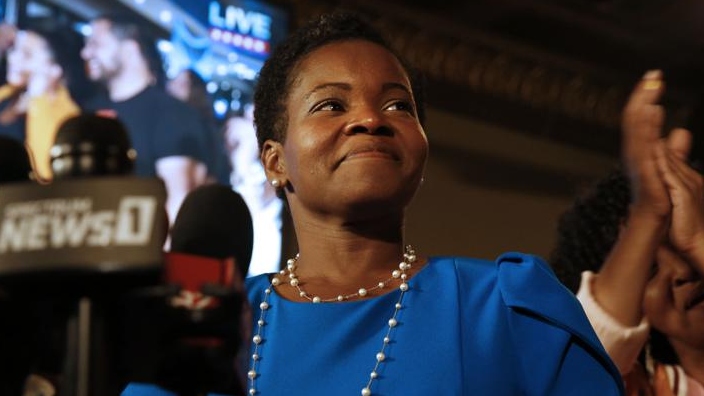
He is now running as a write-in candidate with support from law enforcement and has criticized Walton for her plans to cut $7.5 million from the police department budget. She says the plan is aimed at addressing the root causes of crime. Brown says the move is “clearly defunding police.”
In Atlanta, rising crime rates and a spate of high-profile killings have many residents saying that they would like to balance policing and racial justice. Former Mayor Kasim Reed is seeking to return to office as a top contender in a crowded nonpartisan race that will likely result in a runoff.
Reed cited the crime surge as the motivation for his campaign for a third term. He has told voters that the low crime rate during his tenure and the hundreds of police offices he once hired make him the best choice.
City Council President Felicia Moore, a longtime critic of Reed, is another top contender who has cited rising crime as a reason she’s running. Other candidates have spoken about adding more police officers and stressed the need to focus on the root causes of crime, such as affordable housing and unemployment.
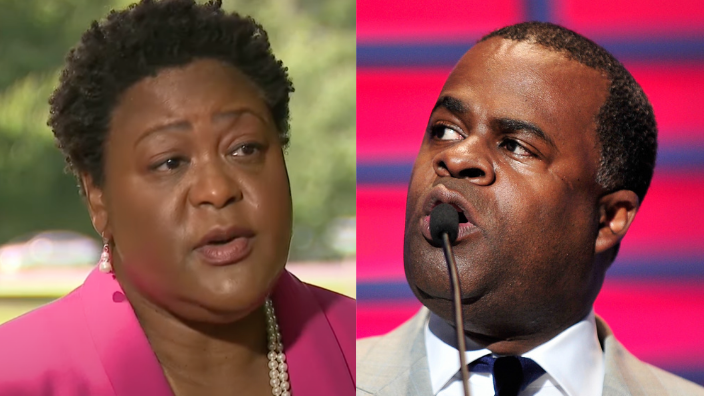
In Seattle, mayoral candidate Bruce Harrell, a former city council member who has called for hiring more police officers to stem a rise in shootings, has criticized opponent Lorena González for supporting the police defunding movement.
González, the city council president, has called for an overhaul of the police department, which is under federal supervision for a pattern of excessive force and evidence of biased policing.
In Boston, the contest between city council members Annissa Essaibi George and Michelle Wu means whomever wins will become the city’s first woman and first person of color elected mayor.
The candidates, both Democrats in a nonpartisan race, have chiefly clashed over issues such as affordable housing, public education and transportation. But differences on policing and crime have also emerged.
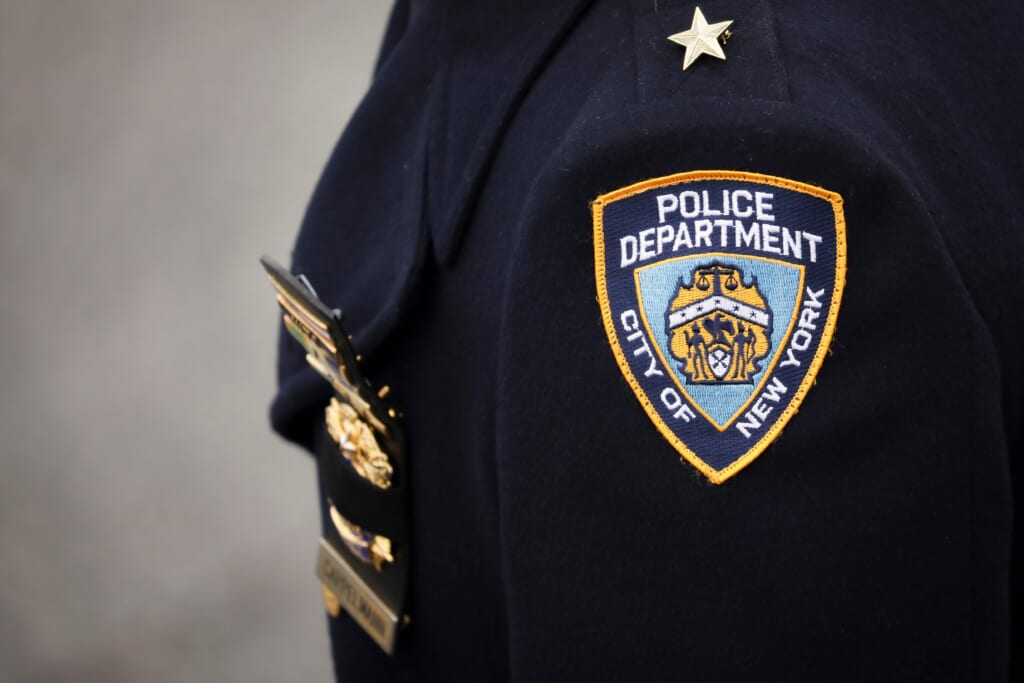
Wu, daughter of Taiwanese immigrants and a protégé of liberal Massachusetts Sen. Elizabeth Warren, has called for major police reforms. Before she was a candidate, Wu joined other city council members in calling for a 10% cut to the police department’s budget.
Essaibi George, who describes herself as Polish-Arab American, has opposed reallocating the money and has called for hiring several hundred more police officers. She was endorsed by former Boston police Commissioner William Gross.
Even in Waterloo, Iowa, with a population of about 68,000, policing and race have become a flashpoint in the mayoral race.
The city’s first Black mayor, Quentin Hart, has been falsely painted by critics as an opponent of policing and has faced vicious criticism for months from a political action committee called Cedar Valley Backs the Blue, which was formed by retired Waterloo police officers.
The group blasted the city’s move this year to retire the police department’s longtime griffin logo — which looks similar to a KKK dragon — and sought the resignation of the city’s first Black police chief, a close Hart associate.
Hart’s opponent, white city council member Margaret Klein, campaigned as a supporter of police officers and won the group’s endorsement.
Adams is the Brooklyn borough president and a former New York City police captain. He will become the city’s second Black mayor and must steer the damaged metropolis through its recovery from the coronavirus pandemic.
Adams’ victory Tuesday seemed all but assured after he emerged as the winner from a crowded Democratic primary this summer in a city where Democrats outnumber Republicans 7 to 1.
Sliwa is the founder of the Guardian Angels anti-crime patrol. He ran a campaign punctuated by stunts and his signature red beret.
This a breaking news story. Updates to follow.
Have you subscribed to the Grio podcasts, ‘Dear Culture’ or Acting Up? Download our newest episodes now!
TheGrio is now on Apple TV, Amazon Fire, and Roku. Download theGrio today!
